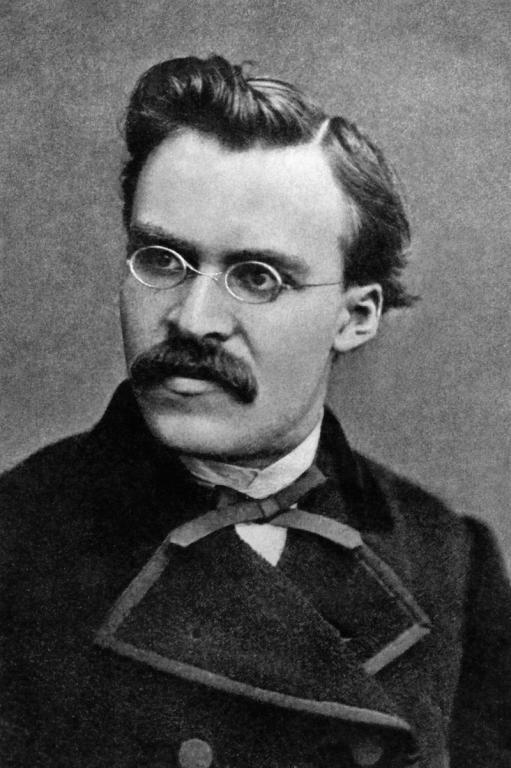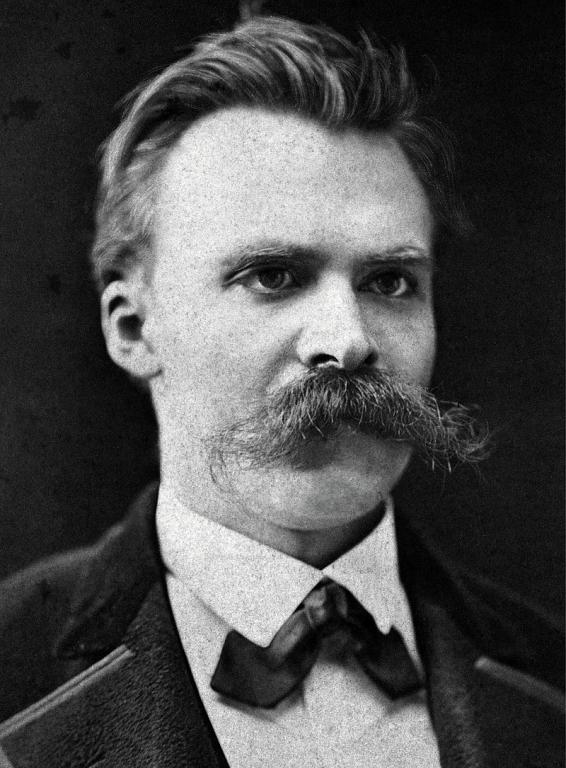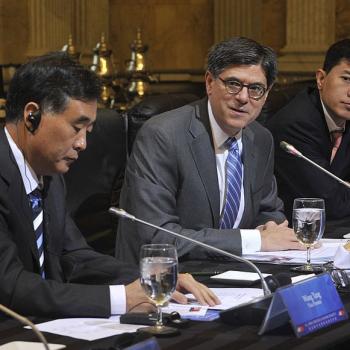One thing that fascinates me today about the homosexual marriage movement is the utter confidence that so many of its members have in the rightness of their cause. Many of them today are refusing to consider any other view as being possible than their own. This supreme certainty – both morally and emotionally – is especially prominent among American same-sex advocates, and it puts them at odds with a lot of the other cultures of history.

I want to focus in this post on Americans, although the argument applies to the extensions of American culture in other parts of the world. Americans are often criticized for their cultural arrogance – their tendency, upon encountering other cultures, to dictate terms and to tell the other cultures that their longstanding ways of doing things are wrong or inferior. Arguably, this cultural arrogance is especially prominent in the mindset of a lot of American same-sex advocates.
‘Manifest Destiny’ is a 19th-century view that was common in America and that today is roundly criticized. Its gist was the belief that Americans had been providentially ordained to spread out across North America, from the Atlantic to the Pacific, to destroy the cultures and customs of the native inhabitants, and to spread the gospel of American-centeredness to the inferior peoples of the continent. Many of the 19th-century pioneers believed this narrative, whether implicitly or explicitly. Its result was that they did successfully spread across the continent. But along the way they brought terrible destruction and suffering to the native peoples – a national sin from whose shadow America has not yet emerged.
A legacy version of the ‘Manifest Destiny’ mindset seems to have arisen in the last decade among many of the advocates of same-sex marriage (arguably, their movement was American-birthed in the Stonewall riots in New York City’s Greenwich Village). The idea seems to be that the same-sex marriage cause is so right and so just that its advocacy justifies any level of destruction against the persons or cultures that stand in its way. The same-sex marriage movement is, as it were, providentially ordained to defeat any peoples who resist it. To be sure, the movement’s ‘Manifest Destiny’ mindset is not yet very old and thus its advocates have not yet seemed to recognize the destructive lengths to which they are now going. But at the end of this road there are going to be a lot of trampled cultures and peoples. Internationally, there are going to be a lot of bitter feelings toward American cultural imperialism. And there is going to be a renewed belief among a new generation around the world that whatever else they do, they will live for the sake of America’s destruction.
In most endeavors, it is dangerous to have utter confidence in the rightness of one’s cause. In the case of the same-sex marriage movement, it is doubly dangerous. This is because the vast majority of cultures in human history – whether Christian or not – have thought differently about homosexual behavior than the same-sex marriage movement does today. I am willing to be corrected, but I can think of no culture prior to the year 2000 in which there was an official definition of marriage as being anything else than a relationship between a man and a woman – not the Greeks, not the Romans, not the Confucian Chinese, not the Aztecs, not the Inca, not the Maya, not the Mongols, not the Islamic Caliphates, not the Vikings, not the Communists, not anyone.
If this is true, then for a contemporary same-sex marriage advocate to have utter confidence in his views is in essence for him to survey the whole of human history and culture and to say ‘I am right and you are wrong.’ Now, this in no way in fact demonstrates that the same-sex marriage advocate is wrong. Maybe he actually is right. But it ought at least to make him pause. Perhaps, before he rushes headlong after his newfound cause of justice and truth he should stop and think: “Huh. What might it have been that would have caused all of these different people groups around the world, with their many different assumptions and worldviews, to come to such a different conclusion about human sexuality than the conclusion I am reaching. And perhaps I ought to stop and actually research the reasons why they held their views before I summarily dismiss them all as being oppressive and on the wrong side of history.” Doing so would be a first step toward epistemic humility and it would also do wonders for the same-sex marriage advocate’s credibility. It would do wonders as well for the same-sex movement’s opposition to American religious freedom laws. As an aspiring intellectual, it is hard for me to take the same-sex marriage arguments seriously as long as they are so historically and culturally myopic.
And on this issue I certainly am willing to dialogue. I count many same-sex marriage advocates as my friends, I love and cherish them, and I regularly interact with them. But what is so toxic right now is the refusal to dialogue that is prevalent in the movement. There are many professors at universities more prestigious than mine who right now are being cowed into silence on this issue because they are afraid – of losing their jobs, their careers, their sources of stability. This is not a healthy intellectual environment, regardless of the issue.
There are reasons also to wonder whether we are the kind of a people who ought to have such confidence in our sexual views. Look around us in American and western culture. Do we look like a people who are doing healthy and uplifting things, sexually speaking? Online pornography use is rampant. The percentage of us on depression medication for our out-of-wedlock sexual behaviors is incredibly high. Lots of us are undergoing surgery every year for the sole purpose of improving our sexual desirability (breasts, butt, tummy, lips, face, etc.). Five-year-old girls are being sold two-piece swimsuits. Sex toy shops are present on countless street corners. Rappers are singing about the joys of rape. Obsession with sexual experimentation is everywhere on YouTube. Are these the behaviors of a society that knows what it is doing, sexually speaking? Is this a people whose practices give them a basis on which to instruct other cultures – like a teacher to a student – about upright sexual morality? To me, at least, this sure looks like a culture that is experimenting and in major confusion about its sexual opinions, and not a culture that is in any kind of a stable position from which to make moral pronouncements.
Maybe, just maybe, we should consider the possibility that we are moving too fast. Maybe, just maybe, we should consider the possibility that our actions are being perceived in other parts of the world as cultural and sexual imperialism. Even at a bare minimum, for us to consider this possibility would be for us to go a long way toward remedying our reputation – as Americans and westerners – for cultural arrogance. Today the finest minds in our universities and law firms are spending their energies devising moral and legal arguments to justify sexual behaviors that are still considered to be abhorrent by other cultures and peoples. As the first generation of twenty-first century Americans and westerners, do we really want sexual imperialism to be our collective historical legacy, our gift to the world?















